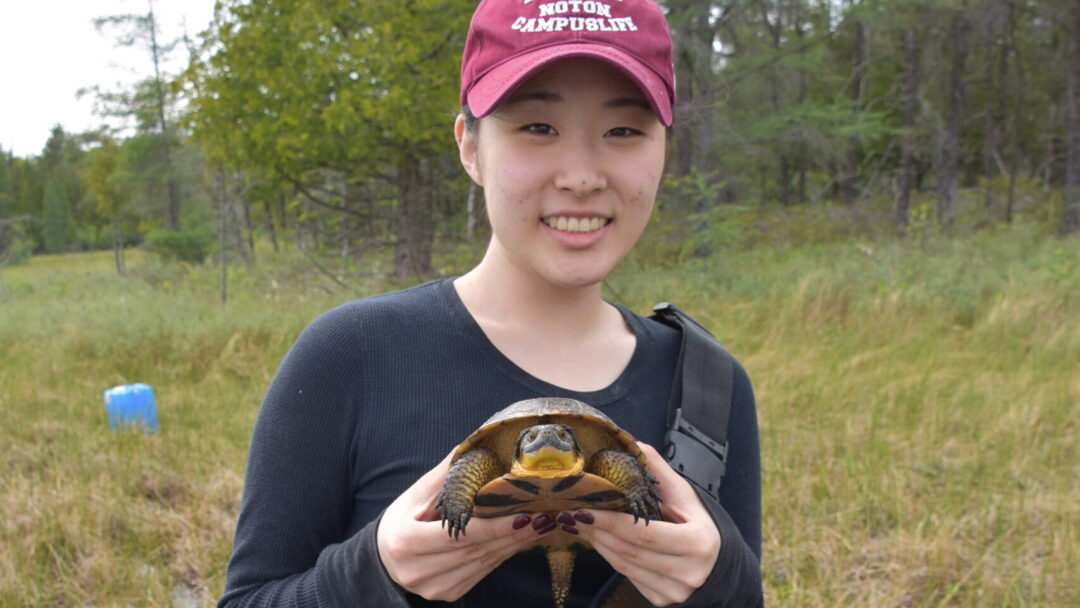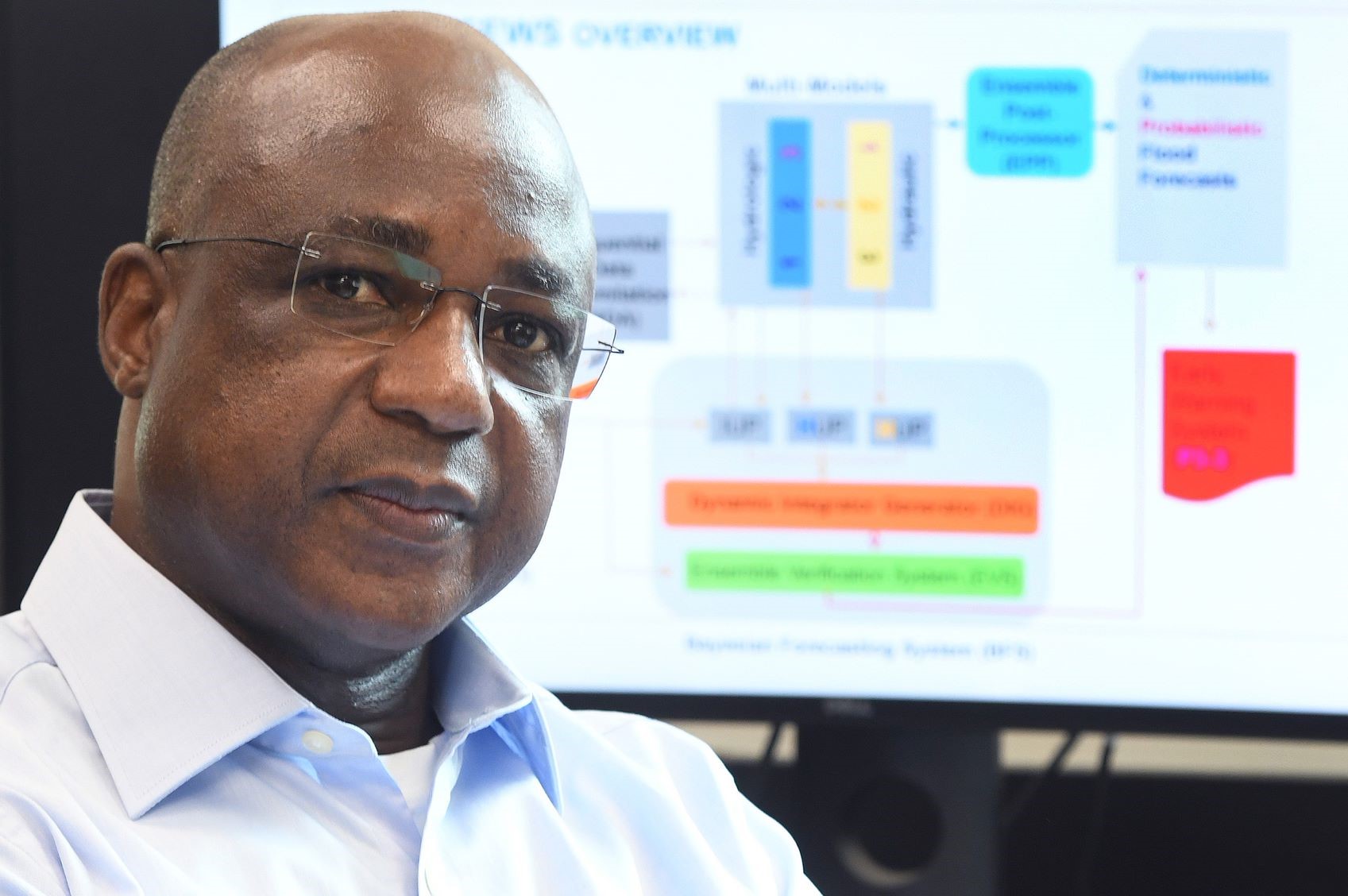Undergrad bitten by the fieldwork bug at Whitefish River First Nation

Yuri Song’s allergic to bug bites so spending two weeks trekking through Northern Ontario forests and wading into wetlands was maybe not the best of ideas.
Her face swelled up as soon as she got out of the truck after the five-hour drive from McMaster. She was getting eaten alive despite being covered in bug spray from head to toe. “It looked like I’d gotten really bad Botox.” Her mom didn’t know whether to laugh or cry while Facetiming her daughter.
Yet for Yuri, the bug bites were a small price to pay for this one-of-a-kind opportunity. It was her first time doing field research and now she’s hooked. Forget slipping on a lab coat and doing research on campus – Yuri’s ready to head back outdoors, brave the bugs and pull up a pair of hip waders.
She learned about the two-week field research stint when an email landed in her inbox. There were four spots available for undergraduate students who’d just completed their second year in Biology, Interdisciplinary Science or Psychology, Neuroscience & Behavior. They’d join Pat Chow-Fraser’s research group and head up to Whitefish River First Nation on the northern shores of Georgian Bay from May 27 to June 10. Pat’s group has been working for years with the community on conservation projects.
Pat – who’s a professor in the Department of Biology – has supervised hundreds of undergrads and considers it one of the best parts of her job. So she jumped at the chance to develop a two-week field research experience as part of the 2024 Summer Research Experience initiative run by the Faculty of Science’s Office of Undergraduate Research. “It was a win-win,” says Pat. “The undergrads had a fantastic hands-on opportunity to work and live out in the field while my PhD students got extra pairs of hands from four very eager assistants.”
Yuri didn’t expect that she’d get chosen so she was beyond excited when she was invited by Pat. There was an added win for Yuri – the Office of Undergraduate Research covered all the undergrads’ travel, food and lodging expenses (they stayed in a cabin with their own bedrooms). She’d already booked 10 days off her job at the mall so paying out of pocket would’ve been a deal-breaker.
Yuri, along Serena Butera, Marie Wyszkowska and Grace Pollock, helped with three turtle-related research projects run in collaboration with the Whitefish River First Nation community – a progressive and rapidly growing community of approximately 1,200 citizens of the Anishinabek Nation. “They were such gracious hosts and so welcoming,” says Yuri. They greeted the undergrads with gifts – branded mugs and t-shirts with “citizen scientist” silkscreened on the back.
The students worked alongside community members on a nest predation project. The community wanted to know if turtle eggs laid along an abandoned rail line were at greater risk of being eaten compared to eggs laid on natural substrate among vegetation. They built artificial nests stocked with quail eggs and set up camera traps to catch predators in the act.
The undergrads also supported a PhD student’s research into environmental DNA, testing the accuracy of water samples versus visual surveys to detect if turtles are nearby. The students also waded offshore, using radio trackers to find previously banded turtles and see where they were laying eggs. “Pat kept us busy,” says Yuri. The days were long but never dull.
“Everything I’d been taught in my biology courses applied to was I was doing out in the field. I knew what was going on but the experience of being outdoors took what I’d learned in the classroom to a whole new level.” There was one new lesson she learned on the shores of Georgian Bay – field research comes with a whole lot of unpredictability. Unlike working in a lab, there are variables like the weather that you can’t control. “You need to constantly adapt and adjust.”
When they weren’t doing research, the students went on hikes, practiced bird calls and hung out in their cabin – “we became fast friends”. They also got to know Pat as a person and not just as professor Dr. Chow-Fraser. Pat and the PhD students even prepared and served meals for the undergrads. “We were totally pampered. I felt a little guilty standing around doing nothing at mealtime.”
Yuri returned home with lots of bites and a newfound love for field research in the great outdoors. She’s signed on for an independent research project in her third year and plans to do a fourth-year thesis project. She’s hoping Pat will agree to be her supervisor, with no expectation of any more homecooked meals.
Research excellence, Students
Related News
News Listing

Research group receives federal climate change funding to help plan and design more resilient electricity systems
Faculty, Research excellence
4 hours ago

Faculty of Science launches five research-focused credit courses for first and second-year students
Research excellence, Student experience, Students
5 days ago

